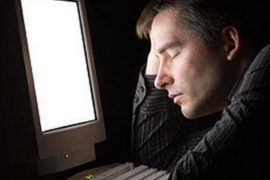Cold, humid and unpleasant. You don’t want to leave your home. Blocking and limiting contacts is also not conducive to winter walks. And yet we must take them as often as possible. If we come to a closed room for several days, without even going for a half-hour walk or to the store for bread, our body immediately experiences serious deficiencies, which affects mental and physical health. Haven’t left home for several days? Be sure to read the text below.
Loss of physical condition
There is no doubt that when you are at home, you move less: you work remotely at your desk, and sometimes even right out of bed. Due to the pandemic, daytime addiction has increased, and a sedentary lifestyle has become one of our main problems. “We know that 30 minutes of exercise a day can reduce the risk of cancer, cardiovascular disease or Alzheimer’s by 40%,” says French cardiologist Frederic Saldmann. Endorphins will have a positive effect on our well-being, exercise will strengthen the immune system, which will better protect us from any type of infection.
Being at home affects your physical performance, putting you at risk for weight gain. The math is simple: “We gain weight because we eat, but we don’t burn calories because we don’t move,” explains the cardiologist. Also, when we feel constant anxiety and insecurity, some of us may tend to snack to compensate for this stress.
Disturbed sleep
“With isolation and remote work, we are losing two sleep synchronizers: natural light and physical activity,” says Philippe Beaulieu, a physician specializing in sleep disorders. During the day, the light level is insufficient, and without exposure to natural light in the morning, the body loses its “landmarks”. As a result, sleep disturbances can occur, from simple insomnia to phase shifts. This is just a step into the “vicious circle of lethargy,” the doctor continues. In other words, the less you do, the less … you want to do.
“We have a natural tendency not to leave the house, which we have to contend with. It is important to keep your hands on and stick to your schedule, advises Philippe Beaulieu. If our sleep starts to deteriorate, it will no longer be able to properly fulfill its role as an “emotion processor.”
Constant reflection

At home, we are left alone with our thoughts, more or less harmful. “Locked in four walls, we tend to constantly analyze, negative thoughts will spin in our brain like a stuck plate,” says social psychologist Christoph Haag. These pessimistic thoughts become completely intrusive. They burden us morally and can lead to depression.
You are bored without leaving your home. We have a strong impression that we lead a monotonous, monotonous and uninteresting life. “While boredom can be good and allows you to learn more about yourself through introspection, it becomes bad if you experience it repeatedly.” This prolonged boredom will then trigger new mania, in some cases nail-biting, skin scratching or eyebrow plucking. It can even lead to eating disorders in those who eat to make up for their inactivity and lack of exercise.
Social rejection

Social isolation heightens feelings of rejection from others, which is one of our greatest social fears. “To be mentally healthy, you have to be surrounded by others, to share with them,” says Frederik Zaldmann. Loneliness is bad for your health. Social isolation activates the same area of the brain that activates when you hurt yourself. Therefore, long loneliness is like real physical pain.
So, let’s not forget to leave the house every day for at least a few tens of minutes, get some air, talk to someone, turn our face to the sun. Let’s take care of ourselves!








